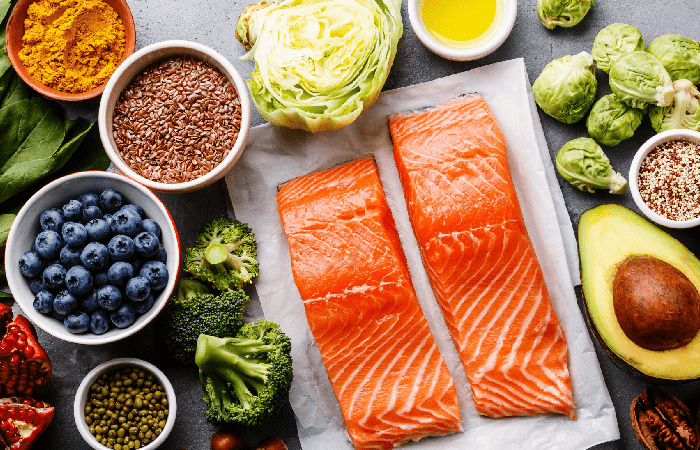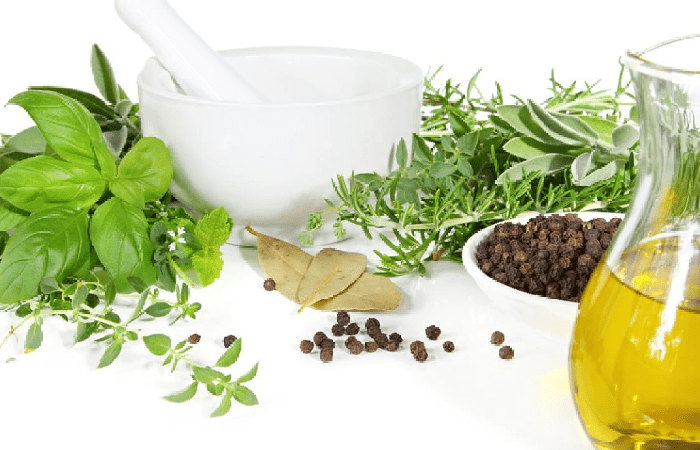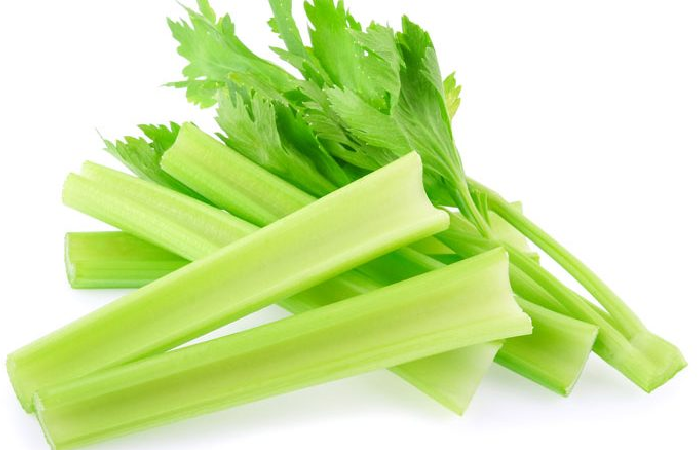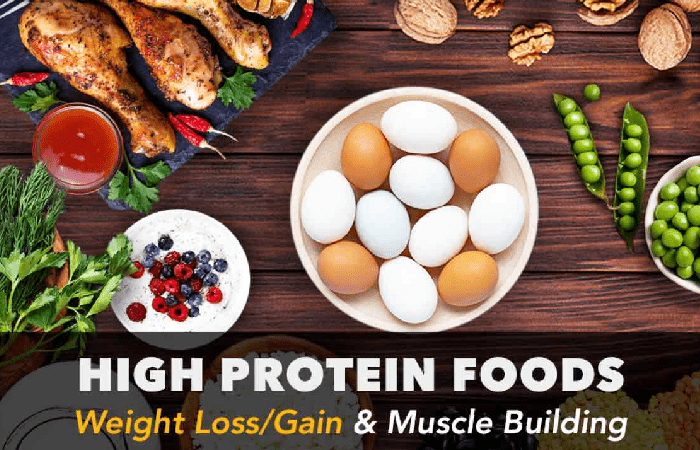Anti-Inflammatory Foods- Their Need And Benefits
Anti-inflammatory foods can reduce inflammation, and as a result, many chronic diseases' symptoms can be reduced or even eliminated. Let's look at the best meals for reducing inflammation.

Doctors are discovering that refrigerators are the best places to find anti-inflammatory medication An anti-inflammatory diet can help you permanently combat inflammation.
What is Inflammation?
The body's natural tendency to become inflamed is not always bad. When a part of the body is hurt or ill, the lymphatic (immune) system kicks into gear, increasing blood flow to the affected area to deliver the immune system's army of white blood cells there.
Along with swelling, redness, heat, and pain or discomfort, the area may experience increased attention. You've probably witnessed this inflammatory reaction in action when a cut or scrape gets hot and puffy around the wound as more blood leaks out.
The natural and efficient response that promotes healing in a healthy body is inflammation.
Sometimes the immune system overreacts and begins to attack healthy body parts. This leads to autoimmune conditions such as leaky gut and inflammation in healthy body parts. Fibromyalgia, celiac disease, and irritable bowel syndrome (IBS) are also linked to inflammatory consequences.
As the body continues its attempts to repair the tissues in a specific place inflammation is inevitable. Asthma causes airway inflammation, inflammation from diabetes affects insulin resistance, and so forth.
Even though we will explore the relationship between diet and inflammation and the links between inflammation and prevalent diseases, nutrition isn't frequently studied in response to inflammation.
Anti-inflammatory foods provided adequate relief for all of the patients who took them. They were able to stop taking at least one of their medications.
We can certainly do more to encourage anti-inflammatory lifestyle changes.
How Does Inflammation Occur?
When a foreign substance, such as an invasive bacteria, plant pollen, or chemical, is recognized by your body, your immune system is triggered. Inflammation is frequently brought on by this. Your health is protected by brief attacks of inflammation brought on by seriously dangerous intruders.
Even when you are not in danger from an outside invader, inflammation can occasionally continue day in and day out. At that point, inflammation may turn against you. Chronic inflammation has been related to a number of serious diseases that affect us, including cancer, heart disease, diabetes, arthritis, depression, and Alzheimer's.

Anti Inflammatory Diet
Standard American diets (also known as SADs) are never hailed as ideal, but when discussing inflammation, it becomes crucial to reconsider our typical meals. As the National Institute of Allergy and Infectious Diseases stated in a report:
Our overabundance of calories and the macronutrients that make up our diet may all contribute to increased inflammation, decreased control of infection, increased rates of cancer, and increased risk for allergic and auto-inflammatory disease, even though the modern diet may offer beneficial protection from micro- and macronutrient deficiencies.
We must largely shift away from the numerous overly processed, imbalanced diets of the West and towards the traditional eating patterns of the Mediterranean if we want to progress towards an anti-inflammatory diet and anti-inflammatory ingredients.
A Mediterranean diet includes a lot of fresh produce, little to no red meat, no chemicals or meat additives, and a lot of omega-3-rich foods.
There is little doubt that a diet rich in vegetables, fruits, wild meats, and sprouted seeds that are full of omega-3 benefits is the foundation of any healing diet or Paleo diet. There is overwhelming evidence that these anti-inflammatory foods can control immune function and alter how inflammation impacts our bodies and our lives.
Top Anti-Inflammatory foods
Without making any significant changes, you can start to mend the body by consuming more anti-inflammatory foods, which combat inflammation and restore health at the cellular level. You can cut out the items that cause inflammation without feeling deprived if you discover foods that satisfy your palette and heal your body.
Here are the top 15 foods that can reduce inflammation in your body.
1. Green Leafy Vegetables
To alleviate inflammation, fill your refrigerator or pantry's produce compartment with various fruits and vegetables. These nutritious foods' anti-inflammatory flavonoids and antioxidants are vital in rejuvenating cellular well-being.
Consider trying delectable anti-inflammatory juice if you find incorporating increased quantities of green leafy vegetables into your diet challenging. This recipe blends a variety of greens with some of the most potent anti-inflammatory ingredients.
Swiss chard, for example, is rich in vitamins A, C, and K, antioxidants capable of protecting your brain from the oxidative stress caused by free radicals. Therefore, regular consumption can protect you from common vitamin K deficiency.
2. Celery
Celery has powerful anti-inflammatory and antioxidant capabilities, which help to lower cholesterol and blood pressure levels, which in turn help to avoid cardiovascular illnesses, per recent pharmacological studies.
Celery seeds provide a variety of health advantages, including reducing inflammation and thwarting bacterial infections. They may be ingested whole, extracted, or crushed. Celery is a fantastic source of potassium, vitamins, and antioxidants.

Maintaining a healthy, inflammation-free body necessitates striking the right balance. An ideal example of this balance is the appropriate ratio of sodium-rich and potassium-rich foods intrinsically linked to inflammation management.
Potassium plays a vital role in flushing out toxins, while sodium facilitates the transportation of fluids and nutrients. Unfortunately, despite the prevalence of sodium in processed foods, potassium is not as readily available in the standard American diet (SAD).
The absence of this crucial balance can lead to toxin buildup within the body, potentially triggering inflammation once again. One of the remarkable benefits of celery lies in its abundant potassium content and other essential nutrients such as vitamins and antioxidants.
3. Bok Choy
Chinese cabbage, commonly called bok choy, boasts a remarkable concentration of antioxidant vitamins and minerals. In addition, research demonstrates that this cruciferous vegetable is replete with more than 70 distinct phenolic constituents, encompassing the potent hydroxycinnamic acids that adeptly neutralize free radicals.
Embrace bok choy as your ideal anti-inflammatory culinary option, given its exceptional adaptability that transcends its traditional use in Chinese cuisine and allows for seamless integration into diverse culinary styles.
4. Broccoli
Broccoli, often celebrated as the quintessential vegetable for promoting well-being, plays a vital role in every health-conscious diet, particularly in combating inflammation.
This green superfood boasts copious amounts of potassium and magnesium, while its potent antioxidants are remarkably effective organic agents for mitigating inflammation.
Enriched with a profusion of flavonoids, carotenoids, and indispensable vitamins, broccoli emerges as the consummate dietary choice for counteracting inflammation. Working in concert, these constituents alleviate oxidative stress within the body and contribute significantly to the ongoing battle against chronic inflammation.
5. Bluberries
Quercetin is an antioxidant that has a very potent anti-inflammatory effect. It is a flavonoid that is a helpful compound or phytonutrient that is abundant in fresh foods. It fights inflammation and even cancer. Citrus, olive oil, and berries with a dark tint all contain quercetin.
Blueberries' many health benefits are due to the presence of quercetin and the related phytonutrient anthocyanins (also known as water-soluble vacuolar pigments, which typically appear red, purple, or blue). Cherries contain anthocyanins and also quercetin.
Increased blueberry consumption, according to research, reduced cognitive decline and enhanced memory and motor skills. The researchers in this study hypothesized that the antioxidants in blueberries were responsible for these outcomes because they shielded the body from oxidative stress and decreased inflammation.
6. Beets
Beets are an excellent example of a food with a deep colour that indicates it is high in antioxidants. Numerous substances fall under the broad category of antioxidants. They battle to restore the cell damage brought on by inflammation in general.
Beets' distinctive colour comes from the antioxidant betalain, which is also a highly effective anti-inflammatory. Benefits of beets in the diet include cell regeneration and high quantities of magnesium and potassium, both of which reduce inflammation.
Magnesium insufficiency is closely associated with inflammatory diseases, and beets are a good source of magnesium.
7. Pineapple
Due to the formidable anticoagulant capabilities of bromelain, nature's alternative for individuals consuming aspirin daily to minimize heart attack risks, pineapple additionally contributes to cardiac well-being. Bromelain is substantiated when bromelain deters blood platelets from conglutinating or amassing along the endothelial surfaces, both identified as prominent factors in heart attacks and strokes.
The salubrious quality of pineapple stems from its abundant presence of vitamin C, vitamin B1, potassium, and manganese, along with other distinct antioxidants that facilitate disease prevention. The phytonutrients present in pineapples are comparably efficacious as numerous pharmaceuticals in alleviating symptoms of several widespread maladies and afflictions currently faced by people.
8. Salmon
Salmon has firmly secured its position as a preeminent nutritional juggernaut, widely acknowledged for its exceptional provision of vital omega-3 fatty acids.

The potent anti-inflammatory properties of omega-3 have been repeatedly demonstrated through many scientific investigations, thereby successfully diminishing inflammation and minimizing the dependence on pharmacological remedies for inflammation management.
Many scholarly research endeavors have illuminated how omega-3 fatty acids contribute to the mitigation of inflammation; potentially decreasing the propensity for the development of chronic ailments such as cardiovascular disease, cancer, and rheumatic conditions.
Furthermore, the human brain contains a substantial concentration of omega-3 fatty acids, believed to be indispensable for cognitive faculties such as memory and performance and for regulating behavioral patterns.
9. Nutrient-Rich Bone Broth
Bone broths are abundant in easily absorbable minerals, including calcium, magnesium, phosphorus, silicon, sulfur, and more. They also contain chondroitin sulfates and glucosamine, costly supplements typically used to alleviate joint pain, inflammation, and arthritis.
Due to the presence of collagen and the amino acids proline and glycine, which can help repair leaky gut and the damaged cell walls of an inflamed gut, I often recommend patients with leaky gut syndrome consume generous amounts of bone broth.
10. Walnuts: A Nutritious Choice
Walnuts possess a remarkable nutritional composition, paving the way for many health advantages. These nutrient-dense powerhouses boast an abundance of wholesome fats, dietary fiber, vitamins, and minerals.
Outstripping other prevalent nuts, walnuts exhibit superior antioxidant capacities and a significantly higher concentration of healthful omega-3 fatty acids, which are instrumental in ameliorating inflammation and enhancing risk factors associated with heart disease.
Furthermore, scientific research corroborates that incorporating walnuts into one's diet reduces low-density lipoprotein (LDL) or "bad" cholesterol levels and fosters arterial wall health.
The advantage of walnuts extends to promoting gut health, augmenting cognitive performance, and facilitating weight management. Integrating walnuts into your daily meals is effortless. They can be consumed as a stand-alone snack or a delectable, crunchy garnish for yogurt, salads, or stir-fried dishes.
11. The Wonders of Coconut Oil
Virgin coconut oil's potent antioxidant content can notably reduce inflammation and alleviate arthritis symptoms, outperforming popular pharmaceuticals. The high antioxidants in coconut oil also make it an effective natural remedy for osteoporosis by combating oxidative stress and free radicals.
Coconut oil's heat stability makes it ideal for sautéing anti-inflammatory vegetables. It can also be used topically and in cooking.
12. The Benefits of Chia Seeds
Fatty acids found in nature, such as omega-3 and omega-6, tend to be more balanced compared to the fats typically consumed in our diets.

Therefore, Chia seeds should be consumed in moderation and offer a wealth of anti-inflammatory and antioxidant nutrients, including essential fatty acids, vitamins A, B, E, and D, and minerals like sulfur, iron, iodine, magnesium, manganese, niacin, and thiamine.
Chia seeds promote heart health by reducing blood pressure, controlling cholesterol, and reversing inflammation. Regular consumption of chia seeds can also minimize the risk of atherosclerosis by combating oxidative stress.
13. Flaxseeds
Flaxseeds are a fantastic source of phytonutrients and omega-3s, and they also have a tonne of antioxidants. Lignans are distinct fiber-related polyphenols that offer us antioxidant benefits for hormone balance, cellular health, and anti-aging. In addition to supporting the growth of probiotics in the gut, polyphenols may also aid in the body's removal of yeast and candida.
Consider crushing them in a coffee grinder before consuming them with your other new anti-inflammatory meals to make sure the digestive tract can easily absorb their many advantages.
14. Curcumin: A Potent Anti-Inflammatory
Curcumin, the primary compound in turmeric, possesses remarkable anti-inflammatory properties. Turmeric's health benefits are invaluable for an anti-inflammatory diet, as it has demonstrated the ability to reduce inflammation in humans and animals alike.
A study published in the journal Oncogene revealed that curcumin is among the most effective anti-inflammatory and anti-proliferative agents globally, while ibuprofen (Advil, Motrin, etc.) and aspirin (Bayer, etc.) are the least effective.
Turmeric's powerful anti-inflammatory qualities make it an invaluable tool for managing rheumatoid arthritis (RA). According to a Japanese study investigating its relationship with interleukin (IL)-6, an inflammatory cytokine implicated in RA, curcumin "significantly reduced" these inflammatory markers.
15. Ginger
Ginger is another immune modulator that aids in reducing inflammation brought on by overactive immunological reactions. Ginger can be utilised fresh, dried, or in supplement and extract form.
Before written history, Ayurvedic medicine celebrated ginger's capacity to strengthen the immune system. It holds that since ginger is so good at bringing down body temperature, it can aid in releasing toxins that have built up in your organs. It is also known to clear the lymphatic system, which is the sewage system of our bodies.
Actually, one of ginger's many health advantages may be its ability to reduce inflammation in conditions like allergies and asthma.

Anti-Inflammatory Foods To Avoid
Integrating anti-inflammatory foods into your daily dietary regimen naturally diminishes your intake of pro-inflammatory foods and substances, as Whole Foods offers superior satisfaction levels.
-
Saturated and trans fatty acids, commonly found in processed foods, significantly contribute to inflammation. In addition, these fats increase the risk of heart disease, diabetes, and obesity by exacerbating visceral fat accumulation.
-
While Omega-6 fatty acids play a somewhat important role, excessive consumption without adequate Omega-3 intake may provoke inflammation. A balanced intake of these fatty acids is crucial in mitigating inflammatory responses.
-
Substituting refined carbohydrates with nutrient-rich whole grains is recommended for maintaining an anti-inflammatory diet. In addition, whole grains provide essential nourishment, further promoting a healthy lifestyle.
Are Eggs Anti-Inflammatory?
Eggs are not generally considered as anti-inflammatory foods. They can be included in a diet that use as anti-inflammatory. Numerous elements, including vitamins, minerals, and good fats, that help support a healthy inflammatory response and are found in eggs. They also include arachidonic acid, which the body uses to make inflammatory substances.
Depending on circumstances like a person's general diet, cooking techniques, and any underlying medical issues, the effect of eggs on inflammation can change. According to some research, healthy people who consume eggs in moderation as part of a diet that is balanced are unlikely to experience an increase in inflammation.
Anti-Inflammatory Diet For Arthritis
An anti-inflammatory diet can help in managing arthritis symptoms and lowering inflammatory levels in the body. The following recommendations should be considered while implementing an anti-inflammatory diet for arthritis. Individual needs may vary though.
Omega 3 Fatty Acids: Include foods rich in omega 3 fatty acids. Sardines, mackerel, and salmon. Also eat flaxseeds, chia seeds, and walnuts.
Eat colored fruits and vegetables. Broccoli, bell peppers, berries, cherries, leafy greens, and also sweet potatoes. They help reduce the inflammation as they are rich in antioxidants and phytochemicals.
Whole Grains: Instead of refined grains, choose whole grains. Brown rice, quinoa, oats, and whole wheat bread. They are high in fiber and have a lower glycemic index.
Focus on Legumes and Beans: Include legumes like black beans, chickpeas, and lentils in your diet. They provide fibre , proteins and antioxidants.
Include Healthy Fats: Eat healthy fats such as avocados, almonds, walnuts, extra virgin olive oil, and seeds like chia and flax. These lipids have inflammatory-reducing qualities.
Spice it Up: Season your food with herbs and spices like rosemary, cinnamon, ginger, turmeric, and ginger. The anti-inflammatory properties of these spices.
Reduce or avoid processed foods: sugary snacks, and beverages. Limit your intake of sugars. These may aggravate the symptoms of arthritis and add to inflammation.
Limit trans and saturated fats: Reduce your consumption of foods containing partly hydrogenated oils, full-fat dairy products, and red meat. These may encourage the body's inflammatory response.
Stay Hydrated: Drink plenty of water all day long to stay hydrated and maintain your general health.
Maintaining a Healthy Weight: Reducing joint stress and relieving arthritis symptoms can be accomplished by achieving and maintaining a healthy weight.



